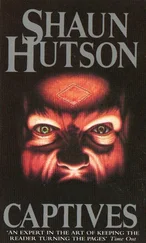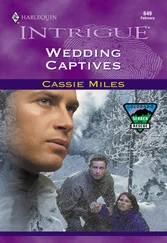Norman Manea - Captives
Здесь есть возможность читать онлайн «Norman Manea - Captives» весь текст электронной книги совершенно бесплатно (целиком полную версию без сокращений). В некоторых случаях можно слушать аудио, скачать через торрент в формате fb2 и присутствует краткое содержание. Год выпуска: 2014, Издательство: New Directions, Жанр: Современная проза, на английском языке. Описание произведения, (предисловие) а так же отзывы посетителей доступны на портале библиотеки ЛибКат.
- Название:Captives
- Автор:
- Издательство:New Directions
- Жанр:
- Год:2014
- ISBN:нет данных
- Рейтинг книги:3 / 5. Голосов: 1
-
Избранное:Добавить в избранное
- Отзывы:
-
Ваша оценка:
- 60
- 1
- 2
- 3
- 4
- 5
Captives: краткое содержание, описание и аннотация
Предлагаем к чтению аннотацию, описание, краткое содержание или предисловие (зависит от того, что написал сам автор книги «Captives»). Если вы не нашли необходимую информацию о книге — напишите в комментариях, мы постараемся отыскать её.
Captives
This is a moving account of a country shaken by communism and anti-Semitism and haunted by recent atrocities, from "a distinguished writer whose vision of totalitarianism is close to Kafka's cloudy menace, universal yet internalized" (Richard Eder,
).
Captives — читать онлайн бесплатно полную книгу (весь текст) целиком
Ниже представлен текст книги, разбитый по страницам. Система сохранения места последней прочитанной страницы, позволяет с удобством читать онлайн бесплатно книгу «Captives», без необходимости каждый раз заново искать на чём Вы остановились. Поставьте закладку, и сможете в любой момент перейти на страницу, на которой закончили чтение.
Интервал:
Закладка:
• • •
The point moves along the length of the ray that rotates constantly around the fixed pole: drawing a line around a fixed center and evenly rotating in one direction. The form of the spiral depends on the logarithm. The mechanics of a watch measure time, time’s passage, duration; the serpentines hook through the space, the upward slope, the aspiration, stairs climbing down curves, cataclysms, crucifixions, clocks, ornaments, more serpentines.
She must be the third person , twisting through the curves of the corridors, preparing the appropriation, the propinquity, curving with the spirals — red, wounded, black spirals full of nodes. She is convertible: she borrows, transports, and withstands roles, dreams, illnesses, nightmares, traps, and masks. Time flows along the length of a line that rotates constantly around a pole, the pace increases the spiral, spirals repeat the initial trajectory, enlarged, diminished, cyclically colored, according to the conjunction. She lives the precursory spiral — the access — serving appearances. The spiral grows, falters, and rotates itself, the curve of the mobile point advancing in a codified direction, around a fixed center. The spiral of Archimedes, the logarithmic spiral, hyperbolic, the sentinel cordons, the credible abstractions, watch springs betraying time, ornaments set in stone, serpentines measuring, staring at space, stairs climbing down, climbing down.
• • •
Laboriously, like the accumulation of dust, the day advances through her large, heavy body. Sweat rolls down from her hairline. The second floor. Hand on balustrade. Eyes closed. Exhaustion, feet burning from so much walking. Eyes closed. An eyelid vibrates, quivers like the little announcement stuck to the gate: ELEVATOR UNDER REPAIR — ELEVATOR UNDER REPAIR — ELEVATOR UNDER REPAIR.
Break between floors. Stopping to rest, to breathe deeply, just once, like the kids in gym. The inhalation: body raised, arms over the head, as if hanging. Exhalation: languid body, arms lowered, at peace — Ah! The third floor. This climb needs to be imagined as the atonement for a paradise of illusions: one, two, five, six, seven, twelve steps till the landing, twenty-four between floors. But there’s no excuse for another break. The steps have to be climbed methodically. Shortness of breath sets in at the nineteenth step: small, suffocated sighs. Hand on balustrade: white wings seem to flutter over shoulder blades. Eyes open, now. Two more steps. Only two more. Briefcase pressed to the hip, climbing. Each step won by the sweat of thy brow, like the bread of one’s days — in purgatory. Pressing the bell: once, twice. No answer. Headache. Pressing the bell again for a long time, a second time. Not a sound. Suddenly, the door opens just an inch, as though someone had been waiting, glued to the back of it.
— Good evening.
The grandmother scrutinizes her through the crack in the door.
— I’ve come for the lesson. Is Luminiţa at home?
— Not today. She has the flu.
Behind the door: laughter, voices, men, women, and possibly a child. The teacher’s cheeks burn, her hand grips the briefcase handle tightly.
— You should have let me know, so I wouldn’t make a trip for
nothing.
— We couldn’t reach you by phone.
— You should have rung me early or in the evening when I’m at home. I can’t make a trip for nothing.
— Luminiţa has a cold.
— I can’t make a trip for nothing.
— We couldn’t reach you by phone. We don’t have money to give away.
— I can’t make a trip for nothing.
Choked and trembling, almost screaming. Behind the grandmother, something or someone else shuffles. The grandmother is moved to the side.
— What’s going on? What is all this commotion? Ah, you! Luminiţa isn’t feeling well.
— I can’t make a trip for nothing.
— You shouldn’t have shouted at an old lady.
— I didn’t shout. But I can’t make a trip for nothing. You should have let me know by phone. I’m tired. I work a great deal. I am tired.
— You’re unreachable, or the phone is busy for hours at a time. We’re finished with this business. German is enough for the child, she has to have fun too.
— Then I’ll talk with your husband. He said he’d make sure the little girl would practice the piano two hours a week.
— You’ll talk to my husband? You intend to start a fight? And why are you shouting at me? Just because I’m not paying you?
— Please pay me for the lesson. I made the trip all the way over here.
— Go on, leave us alone. Do you think I earn money for doing nothing? Forget about it. You didn’t get along with the Bratu family either. You’re too emotional — you should get your head examined.
— Please pay me for the lesson.
— I’m not paying for any lesson. First of all you should beg forgiveness for having insulted an old lady. After that, if you want to give lessons at our place, we can talk about it.
And the door slams.
Leaning against the balustrade. Propping the briefcase against it. Getting out the notebooks, the sheets of correspondence, the typed stories, the scores. Resting the heap on the mosaic flooring. Putting everything in its place, making everything fit: the six scores, the folded sheets, the books. The briefcase barely fitting under her arm. The lesson is lost, probably for good. Three hundred per month. In one year, the little girl could have been playing the piano acceptably. If she’d gone inside, she could have phoned the next student that she’d be arriving early. Maybe there’s a public phone nearby. Climbing down the first step, the second, holding onto the balustrade. Five times twenty-four — getting the crumpled hankie out of the briefcase and mopping her brow. Going down slowly, one step after the other, hand gliding down the balustrade, prudently, like an old lady. The street. A fine drizzle rains down. The backache, sagging in the damp air, bent over the briefcase. And leaving. Evening rises, assuaged. And she will arrive, depart, arrive, depart, crossing streets, finally return in a daze: another accursed evening when ample and abounding tears will sprinkle the streets, and she will become the same little girl, though her nails, hair, hands, and breasts will have grown. Poisoned, villainous tears. The woman suddenly aged overnight will climb the steps of the narrow, winding, spiral staircase, will prop the briefcase near the door and look for the small, shiny, yellow key. The cardboard notice tacked to the wall will flutter slightly under her panting breath. Professor M. Smântănescu. French and Piano. Quiet. There are other tenants.
The key will twist to the left with its teeth facing down. The door will rock softly, slightly: to the left, to the right. The switch. The light.
The whistle of the three sharp, tender little bullets, colliding with the body — collapsed and reconciled with itself — or the teaspoon of poison in the jar on the table, the poisoned water in the glass and the brief twitch, or the assassin’s two hurried hands encircling the throat, pressing persistently with an obscure tenderness as the victim’s death rattle sounds ever more dimly: the joy of the finale. The saxophone whispers, the voice of the black woman wailing Summertime, Summertime , the end of a summer day, requiem for the agony of the murderer, of the suicide. The rotations of the tapes on the tape recorder, the fairy tale, the caged little bird, the negligent assassin, frozen, with a hand to her stiff neck, in that final gesture of horror, of weakness, of suicidal suffocation, dumbstruck by its reality, its image — like his sister who was dispersed in the smoke of crematoriums, like the suicidal Captain, like his daughter reduced to fumes, a phantom.
Читать дальшеИнтервал:
Закладка:
Похожие книги на «Captives»
Представляем Вашему вниманию похожие книги на «Captives» списком для выбора. Мы отобрали схожую по названию и смыслу литературу в надежде предоставить читателям больше вариантов отыскать новые, интересные, ещё непрочитанные произведения.
Обсуждение, отзывы о книге «Captives» и просто собственные мнения читателей. Оставьте ваши комментарии, напишите, что Вы думаете о произведении, его смысле или главных героях. Укажите что конкретно понравилось, а что нет, и почему Вы так считаете.












